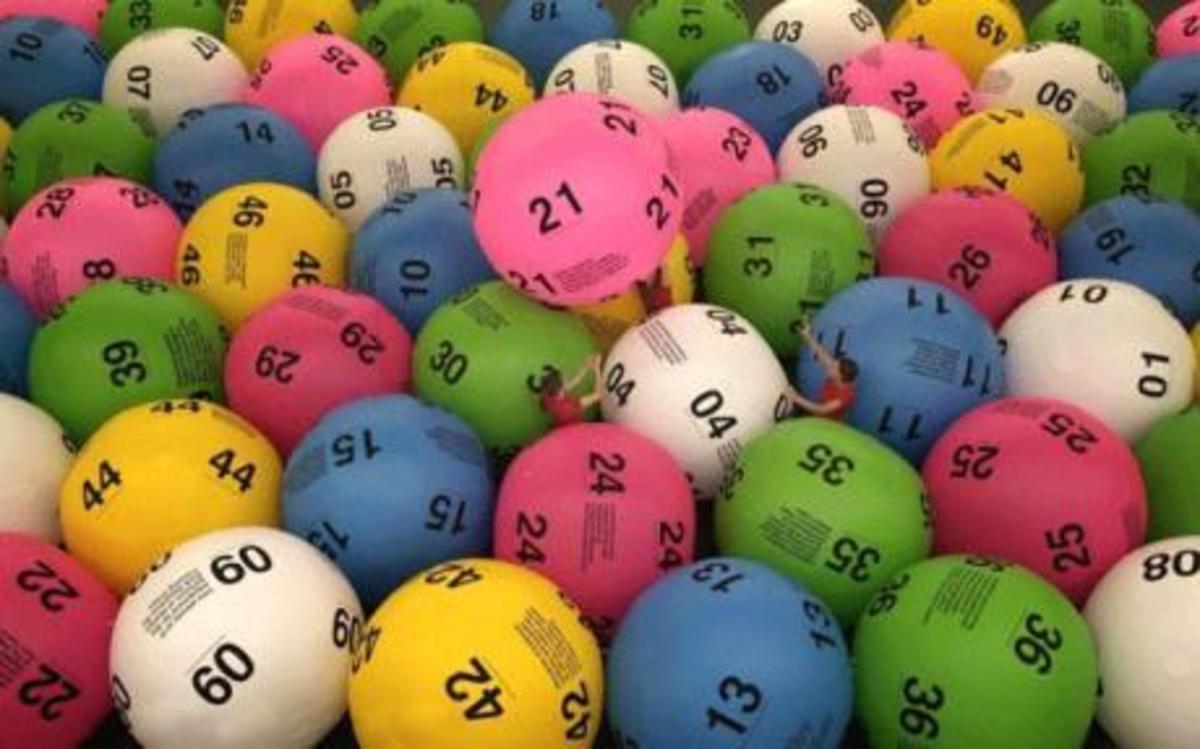Lottery Math
Lottery Math
Let's look at some basic lottery math. As you've no doubt heard many times "The Lottery is a tax on people who are bad at math." Perhaps we can correct a few mathematical deficiencies in order to clarify elementary lottery calculations.
Lottery Math
Let's start simply. Imagine that somewhere in the world a 1 number lottery exists. Players plunk down a single dollar and get to pick a single number. For the sake of argument our imaginary number runs from 1 to 100.
What are the odds of winning? That depends on what you consider "winning". The statistical odds of picking the correct number are 1 in 100. That can also be stated as 1 to 100 against. In other words, if you play the game 100 times, statistical analysis indicates you will win one time. Statistical analysis only goes so far; you might win 100 times in a row, but that would be very improbable. 100 consecutive wins is not impossible, just extremely unlikely.
Now, the very smart players (depending on how you define 'smart') will quickly realize that purchasing more tickets increases the odds of winning. The second ticket purchased actually reduces the odds from 100:1 to 100:2. The odds get reduced. Your chances of winning instantly become twice as good. Given that all 100 possible numbers can be covered by only $100 dollars worth of tickets, savvy players soon figure out that a relatively small investment can guarantee a winning bet. Actually, forking over $100 for all 100 possible numbers morphs the lottery game into a sure-thing. Anyone willing to plunk down a C-note is guaranteed a winning ticket. The only question becomes whether or not the investment will turn a profit. A $101 dollar pay out is necessary to make this strategy worthwhile. Receiving $101 dollars for each $100 spent is a 1% return on investment, or ROI. Doing the same thing every week (assuming the our imaginary lottery is a weekly event) would realize a 52% ROI over a calendar year. At the end of the year you'd have $152 in your pocket.
For better or worse, lottery players are competing (so to speak) with each other. In order for this scenario to blossom, we need 101 other players to not pick the winning number and no other players to pick the winning number. This admittedly contrived scenario would provide us with every other players money and eliminate the obligation to split our winnings with any other player.
The ultimate payout for each drawing is a function of the number of players who risked their money. If 10 players hit the winning number, the payout must be divided equally amongst all 10 players. Referring to the above example, our 1% payout plummets to 0.1%. We make 10 cents a week.
Hopefully you've realized that in short order every player would be playing every number. Every player would win every drawing and the winnings would become diluted to the point that playing the game would hold no fantasy.
More Lottery Math
Our next lottery math scenario will be slightly more real-world. Let us assume a 3 number game, often referred to as a "Pick 3". The numbers range from 1 to 50. The odds of picking any single number is 1 in 50, or 50:1 against. The odds of picking all three numbers are calculated as the product of the individual probabilities. It ciphers out to 1:50*50*50, or 1:503, or 1:125,000. Building on our previous example, you could theoretically purchase all 125000 winning number combinations and be guaranteed a winning ticket. Given that the Pick 3 payout is typically much higher than $125,000 dollars, this scenario appears financially viable. Unfortunately, standing in line at the gas station 125,000 times becomes problematic. Is there a middle ground? Consider purchasing 5 tickets instead of a single ticket. The second ticket reduces your odds slightly. The third ticket reduces your new odds again. Refer to the following table for a detailed breakdown of the odds.
Odds are not cumulative accross multiple games
Each week the odds reset. In other words, your odds of winning don't improve simply because you played last week or have played every week since 1942. If you miss a week, your odds don't get worse the next week. The individual weekly plays are not functionally related or interdependent in any way, therefore the casual player who waits until the jackpot reached 100 million has the same chance to win as the 'faithful' player who buys the same numbers every week without fail.
Caveats
- None of our payout calculations include profits skimmed by the institution running the game.
- Play at your own risk.
- Don't expect to win.
- Take a course in statistics, then reconsider your allocation of entertainment dollars.








